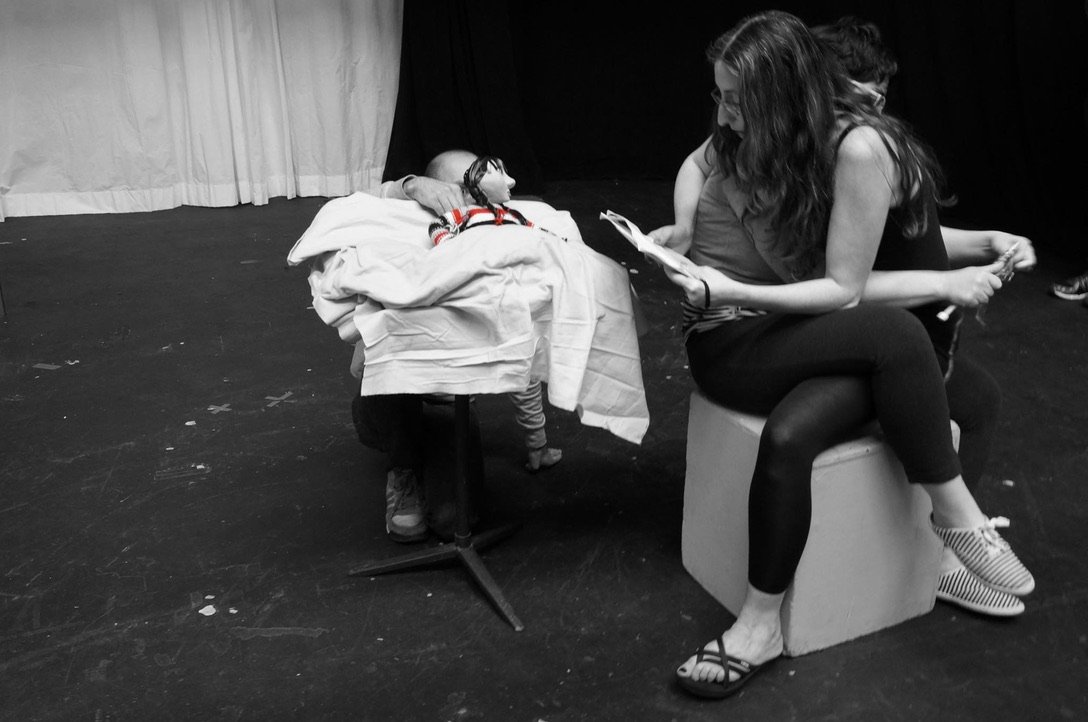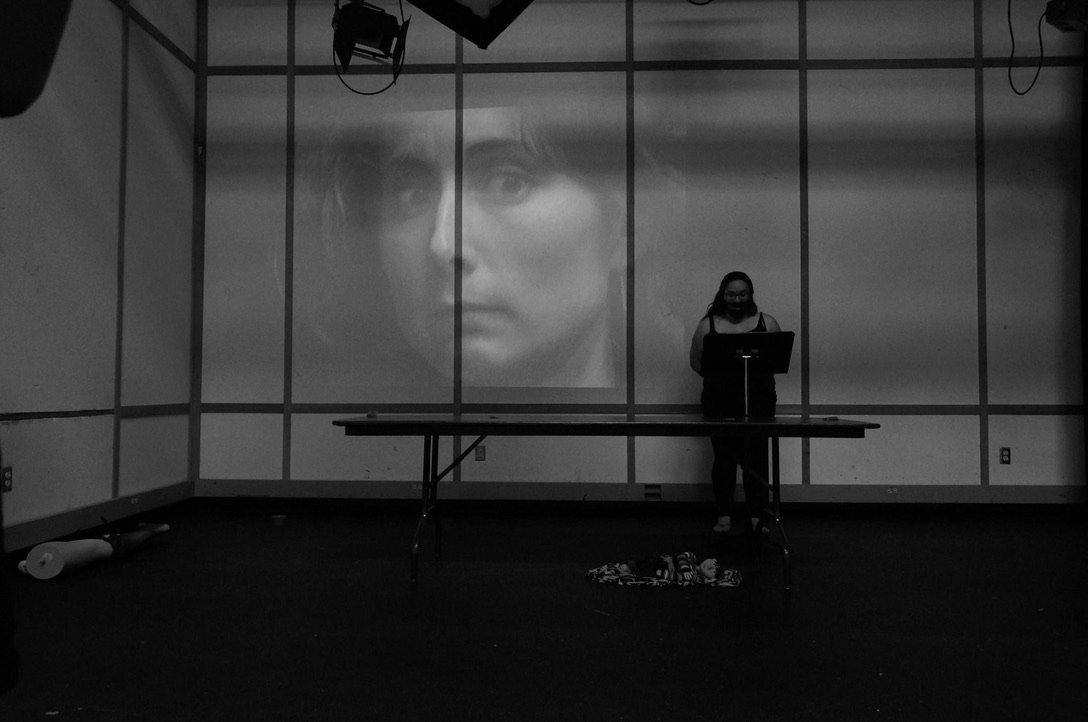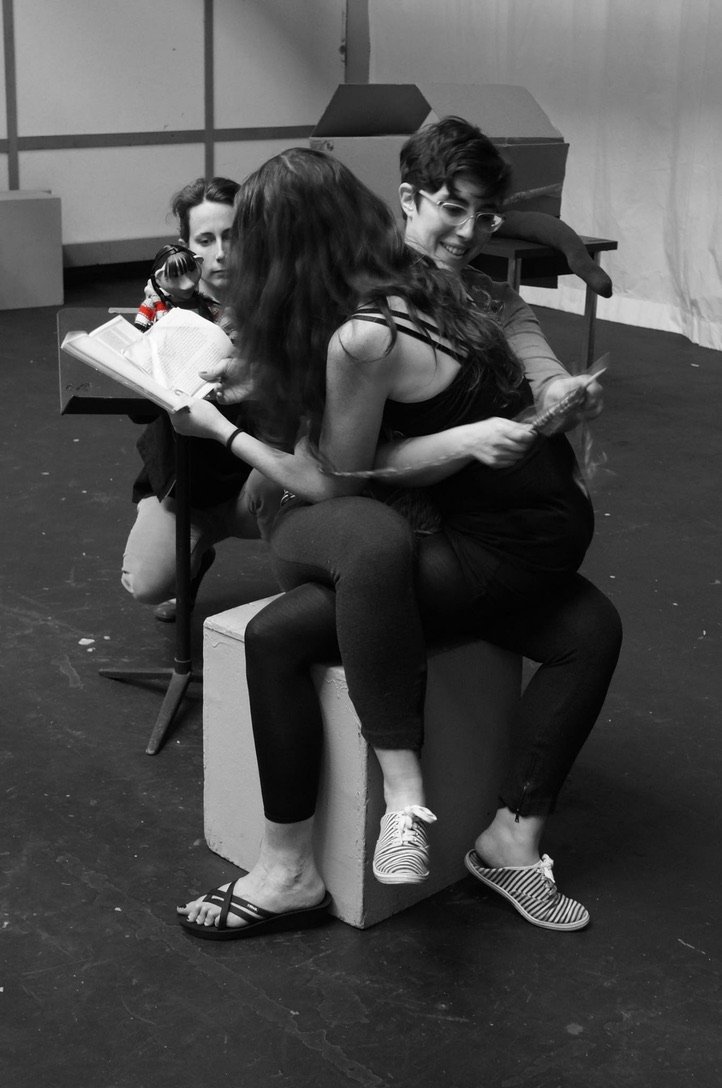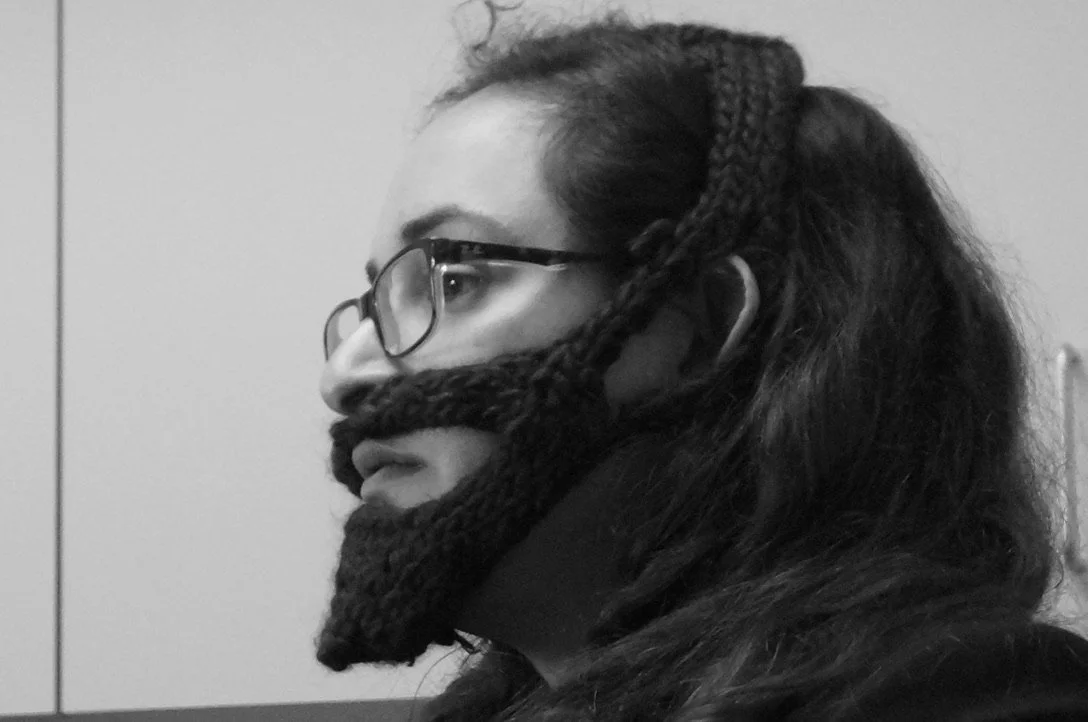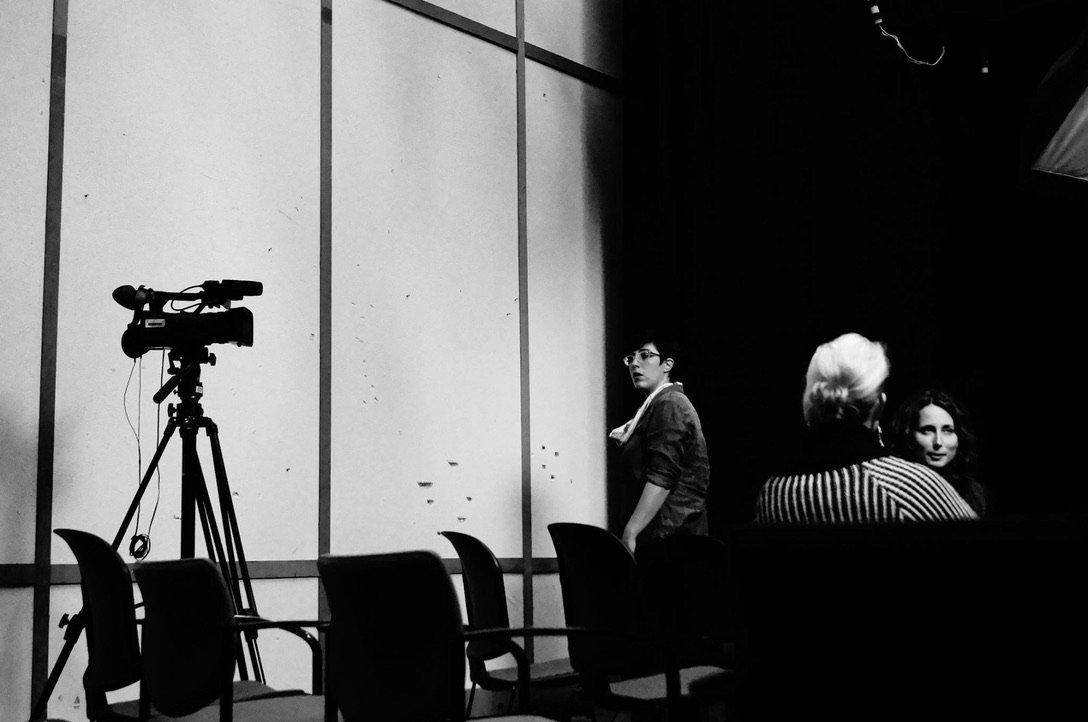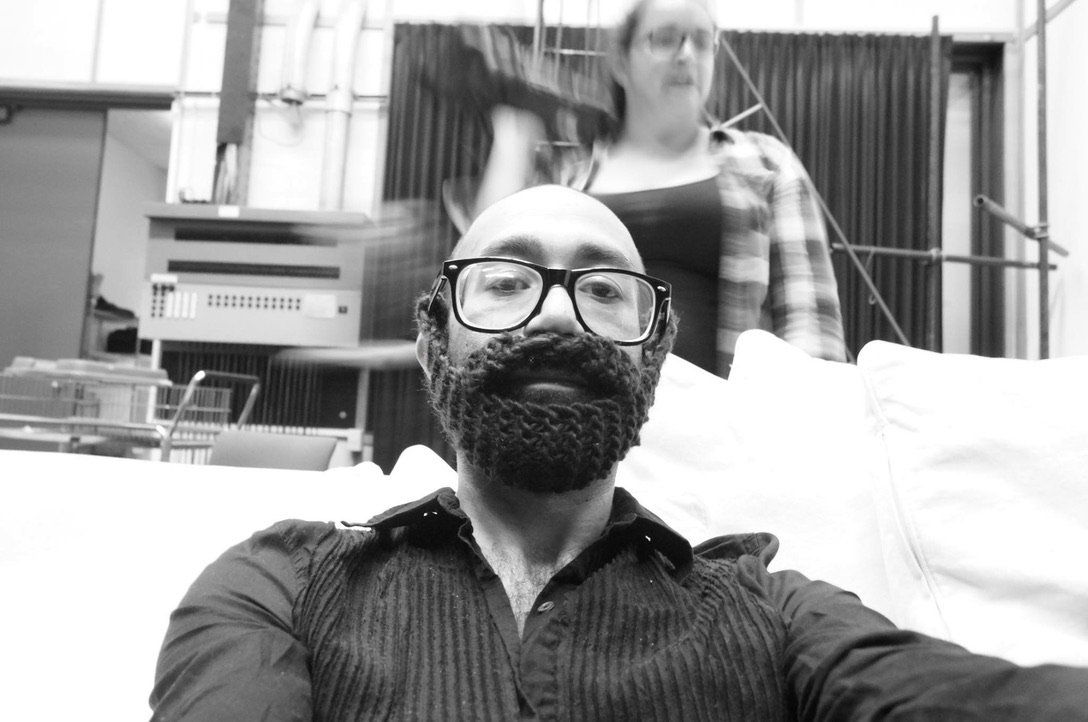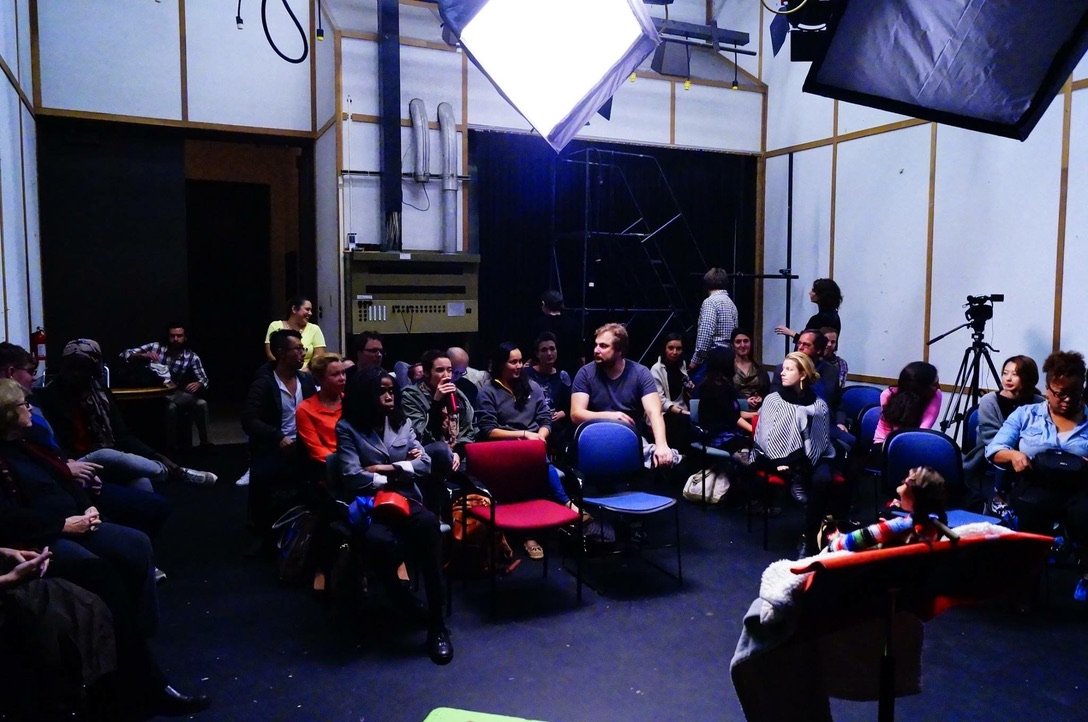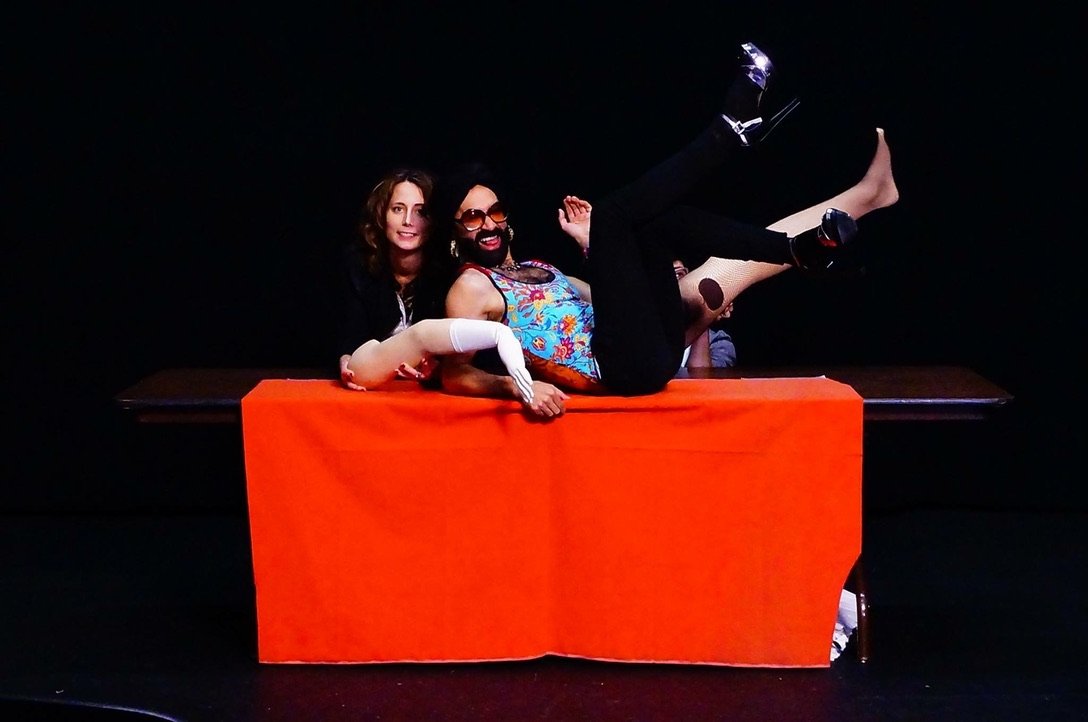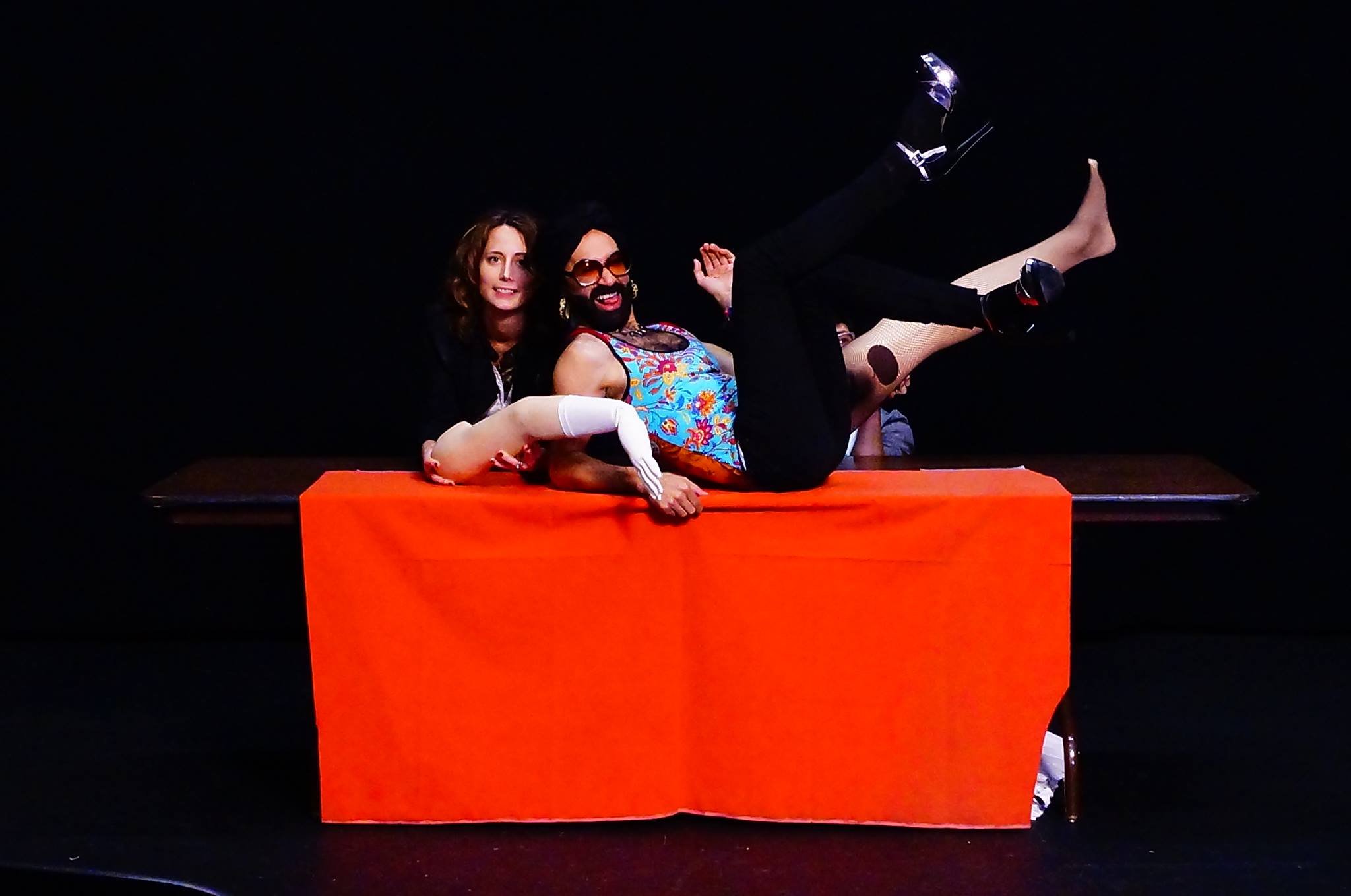
FTT at CommPlayground
Wednesday, January 21, 2015
University of California, San Diego, Media and Communication Center Black Box Theater
Conveners/performers: Christina Aushana, Sarah Klein, Yelena Gluzman, Michael Berman, Julie Burelle, Yecid Calderòn Rodelo, Angela Washko
Participants: Faculty and Graduate students of the UCSD Communication Department
de Beauvoir, Simone. [1952] 1974. The Second Sex. New York: Vintage Books.
Butler, Judith. 1988. “Performative Acts and Gender Constitution: An Essay in Phenomenology and Feminist Theory.” Theatre Journal 40(4): 519–531.
Haraway, Donna. 1988. “Situated Knowledges: The Science Question in Feminism and the Privilege of Partial Perspective.” Feminist Studies 14(3): 575–599.
Hubbard, Ruth and Randall, Margaret. 1988. The Shape of Red: Insider/Outsider Reflections. San Francisco: Cleis Press.
Maracle, Lee. 1996. I am Woman: A Native Perspective on Sociology and Feminism. Vancouver: Press Gang Publishers.
Rich, Adrienne. 1978. “Power.” Dream of a Common Language: Poems 1974-1977. New York, London: Norton.
Star, Susan Leigh. 1990. “Power, Technology and the Phenomenology of Conventions: On Being Allergic to Onions.” The Sociological Review 38(S1): 26–56.
https://doi.org/10.1111/j.1467-954X.1990.tb03347.x.
Stewart, Kathleen. 2007. Ordinary Affects. Durham, NC: Duke University Press.
Recollection (SK): This was the first time we presented FTT publicly, after weeks of reading feminist theoretical texts together at the campus pub, and stumbling towards cobbling together a script, collecting and crafting props, and staging a performance. Word had gotten out about what we were doing, and we were invited by Fernando Dominguez-Rubio to the CommGarden series, which was a set of departmental events for building creative scholarly community, sharing works in progress, and thinking and playing together. This first iteration of FTT culminated in the composition and performance of a play, which included puppetry, drag, knit beards, video projection, text painted on long scrolls of fabric. Following this performance, which ran about 25 minutes, we ran the first FTT workshop, breaking the invited audience of graduate students and faculty into small groups and assigning each group a short passage of one of the texts we had used in composing the performance. The groups then were tasked with reading the passage through staging. This workshop would develop into a format for future iterations of FTT.
FTT at CommGarden is also documented in the first act of our article, Feminist Theory Theater: Acts of Reading as Embodied Pedagogy. Aushana, Berman, Gluzman and Klein (2024)
Archival link for FTT @ Commgarden: https://commplayground.ucsd.edu/past-events/feminist-theory-theatre
Text from the event announcement:
Feminist Theory Theater - Performance as a Way to Read
What do we do when we read theory? We excavate a text (exegesis), we glean useful remnants (skimming), we put the text in its place (disciplinary lit review). But what methods do we invoke to read personally, to evaluate texts ethically, or to evaluate how those texts speak to the complexities of the sensible worlds in which we find ourselves? How do we read to ourselves when "selves" are sometimes constituted multiply, flexibly, or transiently?
Feminist Theory Theater (FTT) would like to invite you to join our experiment in reading feminist theory. Our starting premises are:
texts happen -- A text never exists until it is performed, whether alone in your office, in a seminar, or on a stage. Each situation makes a difference in the way that a text’s effects congeal. We choose texts in feminist theory because these texts have fought for the importance of collective, situated meaning-making, that is to say, what we call theater.
you can't control performance -- Performance is necessarily and intentionally collective, and therefore resists schematization and simplification. Performance always stages its negotiations between control and resistance, between “plans and situated actions”; theater unfolds in a space of contingency.
structure matters-- By rendering theoretical texts as performance, the structure of the text (the way in which it is constructed, its ellipses, repetitions, pillars, and destinations) may require more attention.
is this a text you want to be in a room with? -- In performing our reading, the implications of the text for relations is materialized through the bodies of the (animate and inanimate) performers, the (animate and inanimate) audience. Are these relations the ones you want to build? Are they the ones you want to live within?
Images from rehearsal, performance, and workshop
